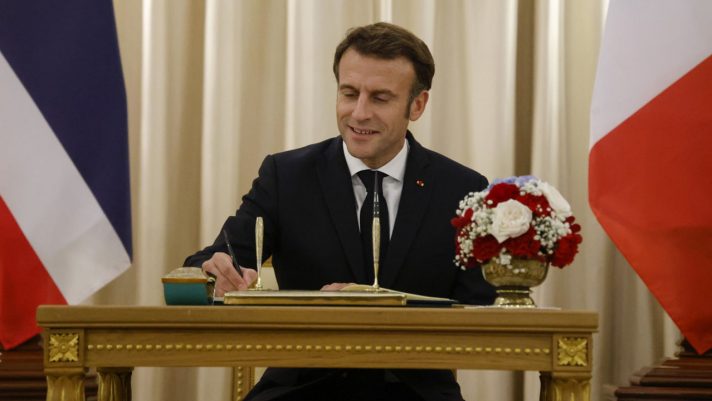France Tuesday repatriated 15 women and 32 children held in a prison camp for suspected jihadists in Syria, the foreign ministry said, in the third major return of French citizens from the country.
Rights groups have been pressing for years for France to take back the wives and children of alleged Islamic State group fighters held in the camps, since the jihadist movement was ousted from its self-declared “caliphate” in 2019.
But the government refused a blanket repatriation, saying the return of potentially radicalised IS family members would pose security risks in France, which has seen a wave of jihadist attacks since 2015.
Instead it said individual cases would be examined, leading to the first group repatriation of 16 mothers and 35 children from Syria in July 2022, and a further 55 in October.
The women and children returned to France on Tuesday were at the Roj camp in northeast Syria under Kurdish administration, near the Turkish and Iraqi borders.
They were placed with social services and the mothers will be brought before judicial authorities, the foreign ministry said, thanking “the local administration in northeastern Syria for its cooperation, which made this operation possible”.
Lawyer Marie Dose, who represents relatives of those held in several camps in Syria, has said 150 French women and children were living in these camps before Tuesday’s transfer.
Contacted by AFP, the French foreign ministry declined to say how many more women or children might be returned.
– ‘Must be repatriated’ –
Tuesday’s operation came after the United Nations Committee Against Torture last week said that in refusing to repatriate women and minors in Syria, France was violating the UN Convention against torture and cruel, inhumane or degrading treatment.
In a version of a ruling dated November 16, 2022, shared by Dose, the committee said that “not taking all reasonable measures in its power to repatriate the plaintiffs’ relatives would constitute a violation by a member state of articles two and 16 of the convention”.
French families have been held in the Roj and Al-Hol camps in Kurdish-held territory.
Rights groups have denounced harrowing sanitary conditions, malnutrition and overcrowding at the Al-Hol camp in particular.
Dose said the latest arrivals showed that “France is, and always has been, able to repatriate children and their mothers”.
“There are still some orphans and several mothers who are asking to be repatriated with their children, including a woman with a disability,” she said, without providing a number.
Martin Pradel, another lawyer representing the relatives of French children in the camps, said “too many children” had still not been returned, “despite their country being condemned” for abandoning them.
“It’s snowing in Syria. Some children are sleeping in tents,” he said. “They must urgently all be repatriated.”
– ‘Share this burden’ –
In the past decade, thousands of extremists in Europe travelled to Syria to become IS fighters, often taking their families to live in the “caliphate” the group set up in territory seized in Iraq and Syria.
Since the insurgents were defeated by US-backed Kurdish-led forces in 2019, the return of family members of suspected fighters who were captured or killed has been a thorny issue for Western nations.
Several European countries, such as Belgium, Germany and the Netherlands, have recovered many of their citizens from the Syria camps.
In September last year, the head of the US armed forces’ Central Command urged nations to repatriate citizens from Al-Hol, which holds around 55,000 people — mostly women and children.
But France has been much more reticent, despite a condemnation by the European Court of Human Rights in September over its refusal to repatriate two women detained in Syria, citing the safety and healthcare threats at the Kurdish-run camps that put their lives in danger.
Many of the women returned to France have been charged with terrorism crimes and imprisoned.
A spokesman for the Kurdish authorities in northeast Syria told AFP on Tuesday that the semi-autonomous administration was “always ready to cooperate with countries with citizens inside the camps of Roj and Al-Hol, but said that cooperation had been “limited” so far.
“We hope the international community will share this burden with us as it is not just our responsibility,” he said.








